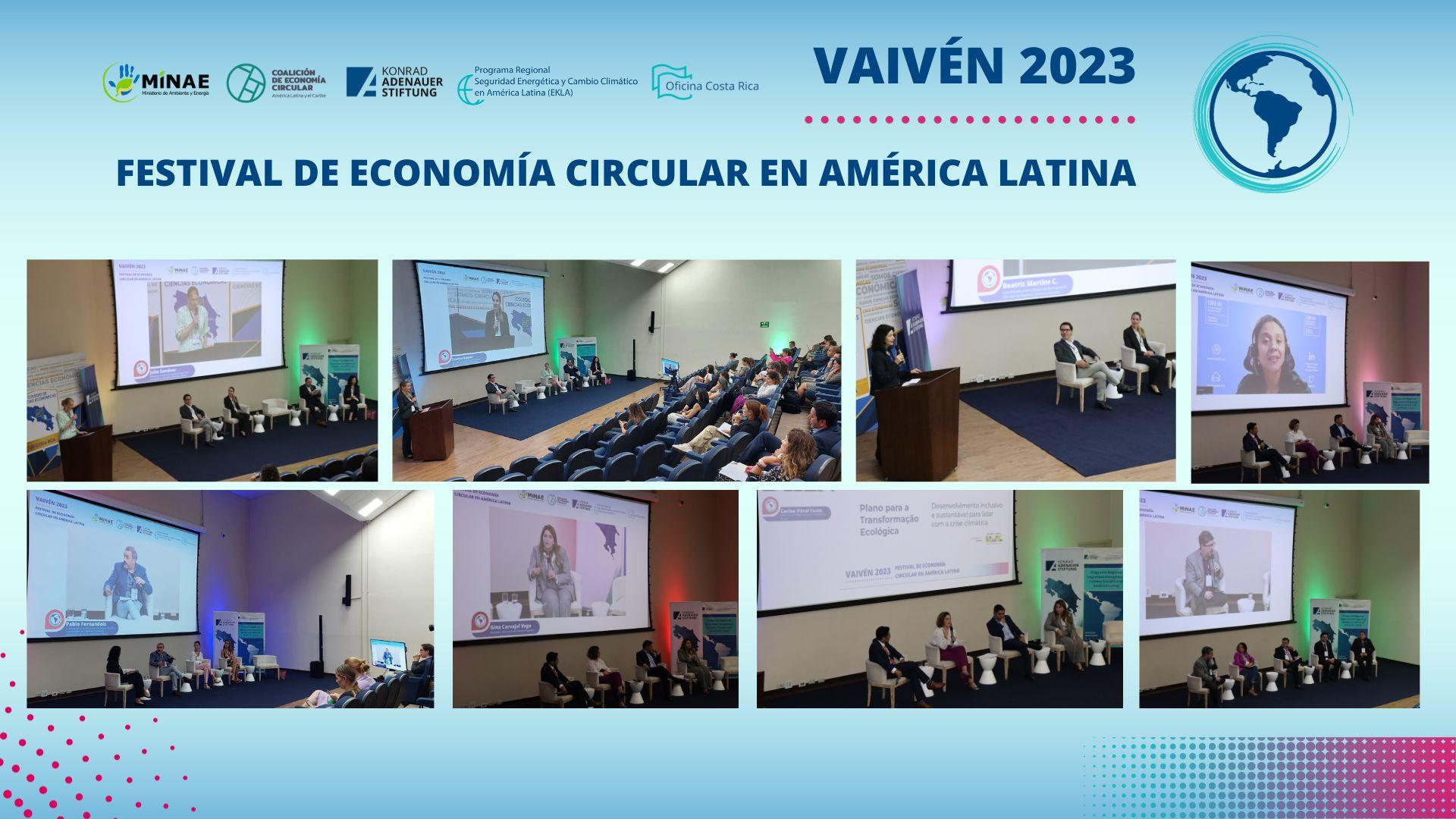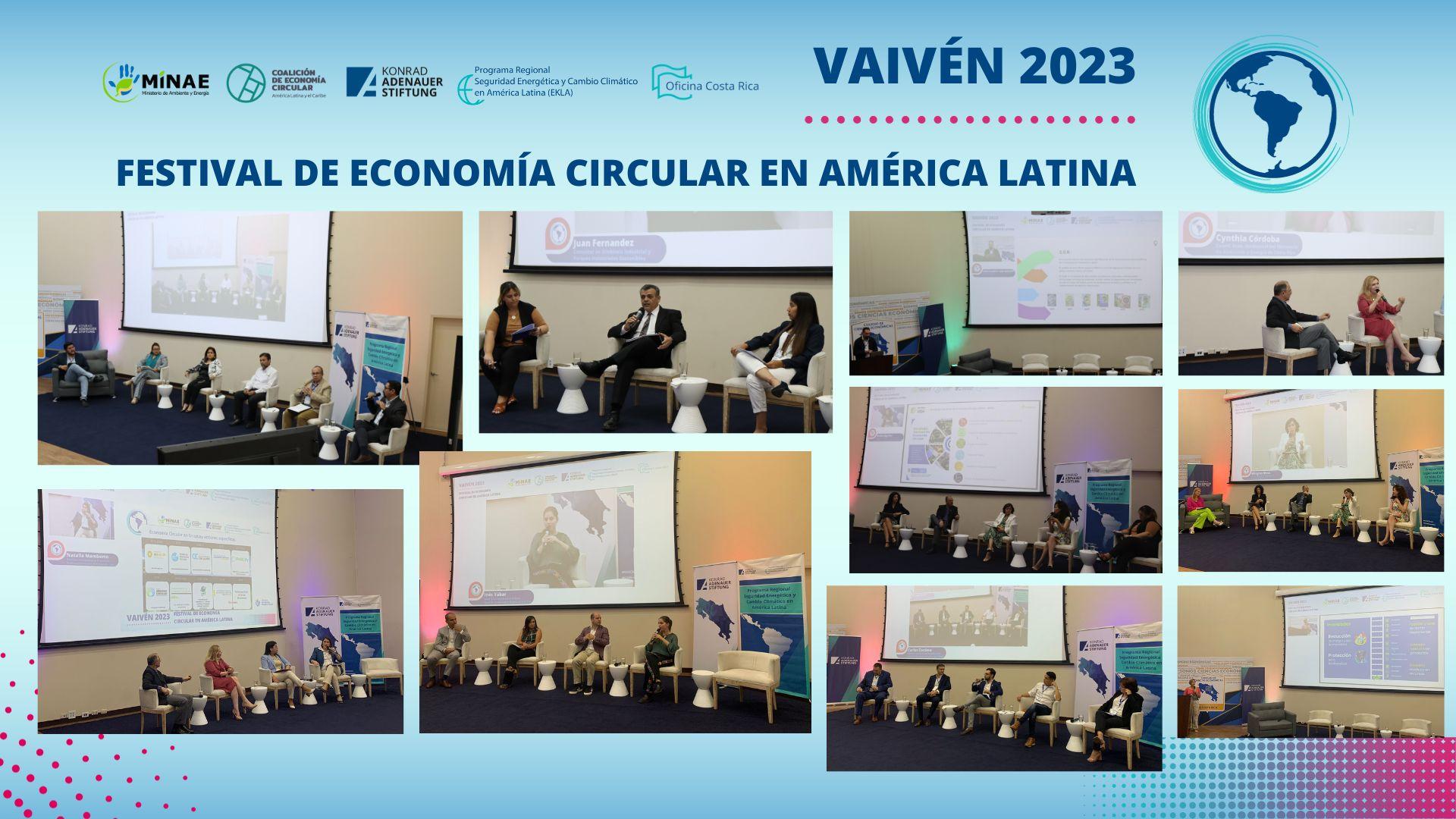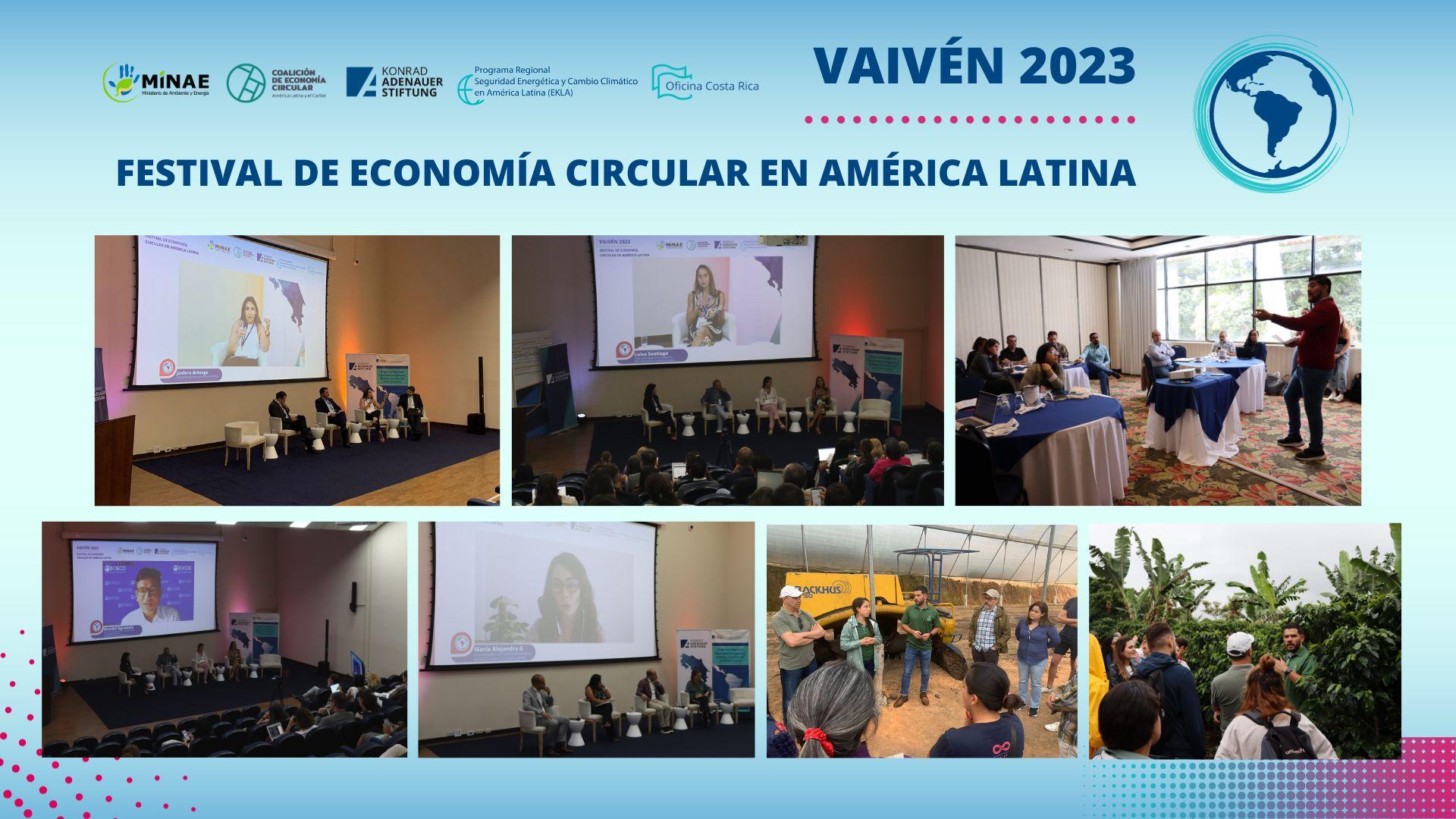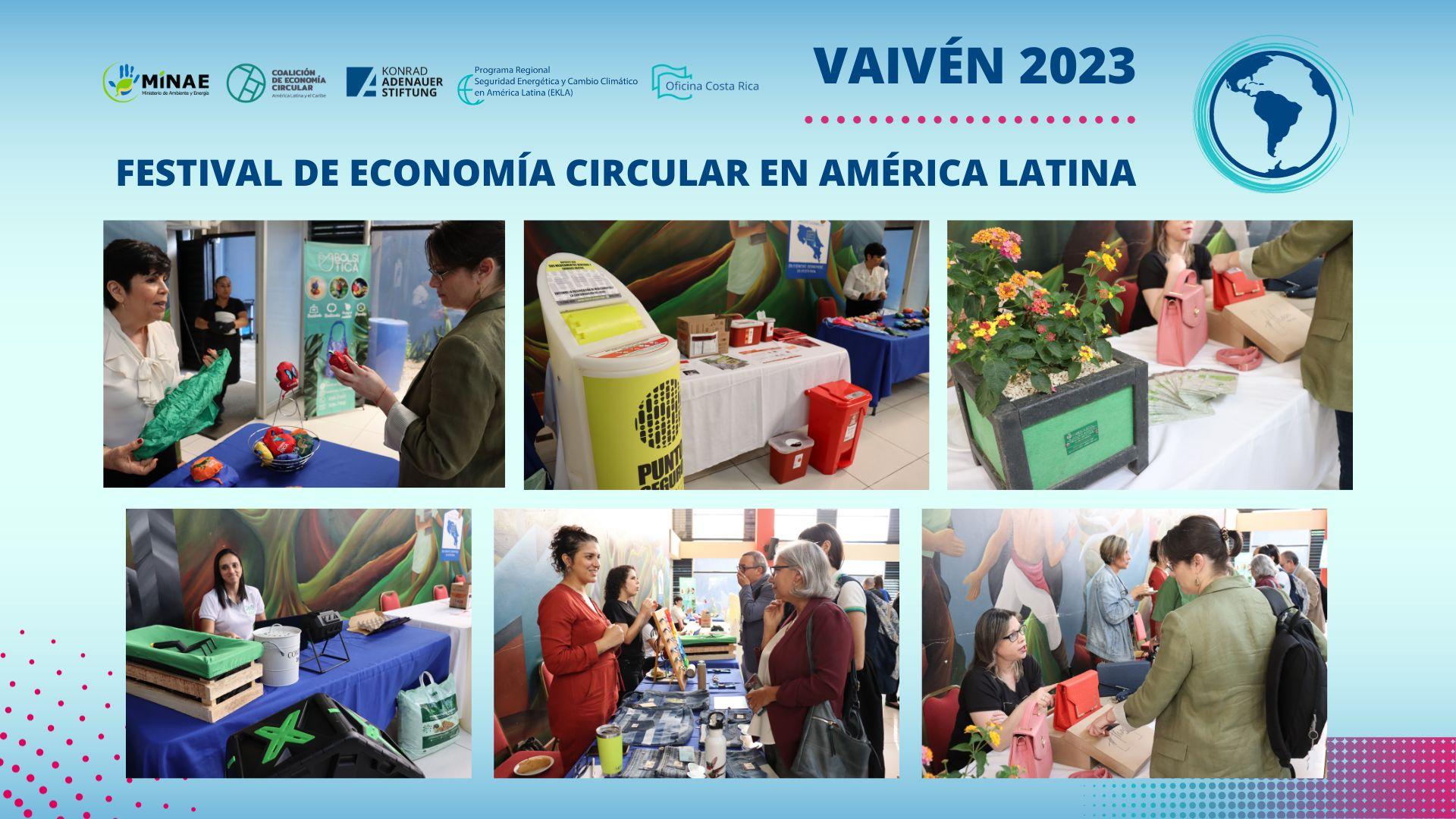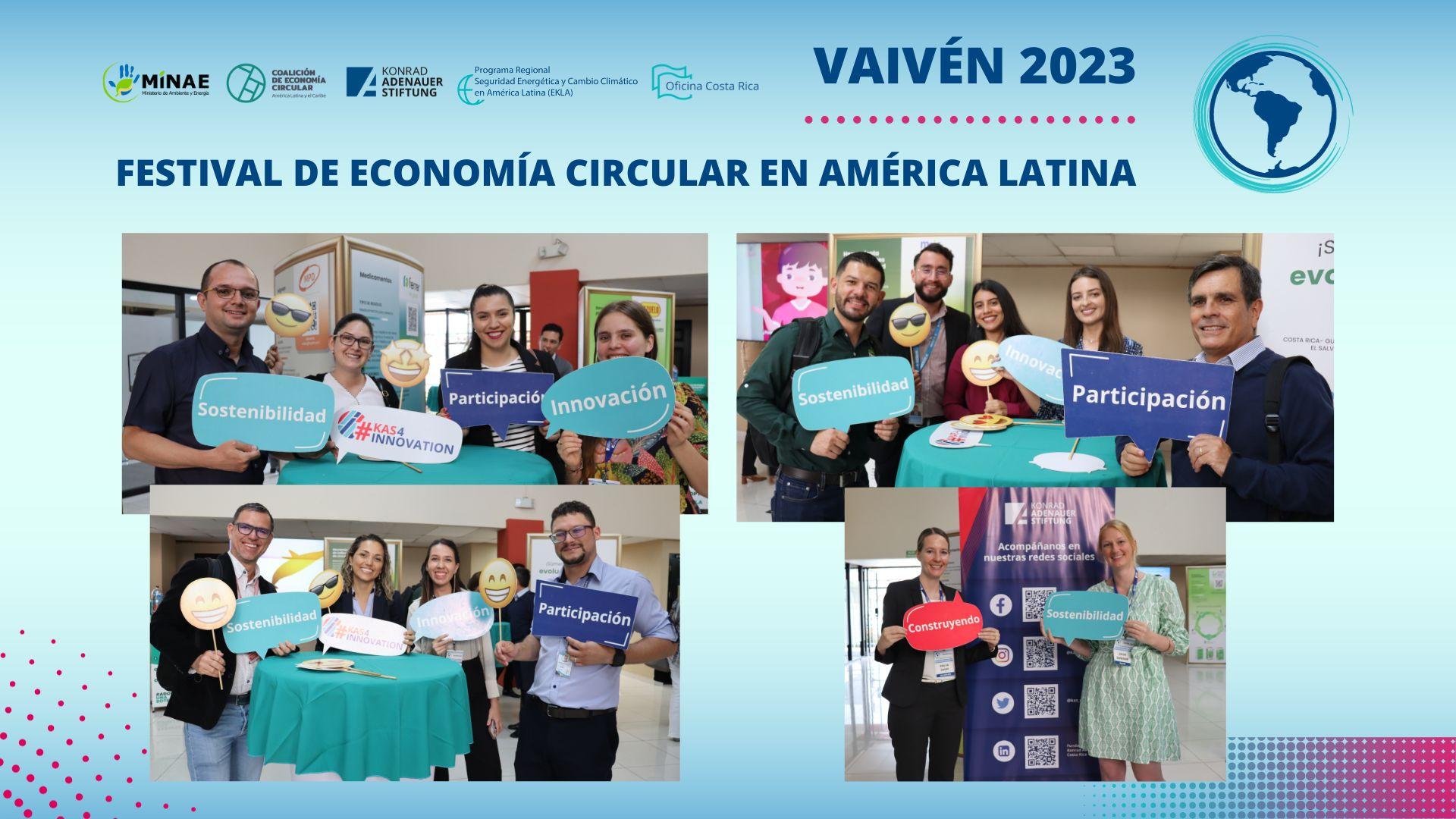The Vaivén: Circular Economy Festival
On October 9 and 10, the VAIVÉN: Festival of Circular Economy in Latin America, an event organized by the Regional Program for Energy Security and Climate Change in Latin America (EKLA) of the Konrad Adenauer Foundation (KAS), the Circular Economy Coalition for Latin America and the Caribbean and the Intersectoral Technical Committee on Circular Economy was held with the support of the Ministry of Environment and Energy (MINAE) of Costa Rica.
The VAIVÉN: Festival de Economía Circular is the meeting and exchange space for the Coalición de Economía Circular for Latin America and the Caribbean, which aims to promote and celebrate the development of the circular economy in the region. The event seeks to bring together in person and virtually key actors in the region to generate exchanges that build bridges towards circularity and to learn about innovative initiatives and projects of different actors in various parts of the region.
Each edition of the Festival is created collaboratively with the strategic partners of the Circular Economy Coalition for Latin America and the Caribbean, seeking to be an event that represents and addresses the different challenges that are being experienced today in the region around circularity. The Festival also calls on the member countries of the Coalition to actively participate in this meeting for the development and strengthening of their public policies.
This fourth edition, held in San José, Costa Rica, on October 9 and 10, 2023, was attended by representatives from 13 countries of the region and different experts and institutions from other countries of the world, which allowed for regional and supraregional exchanges to seek collective solutions to the challenges we face.
Highlights of this year's edition of the Festival
During the event, different topics related to the circular economy were addressed. They discussed how to change from a linear economy to a circular economy and the importance of changing our mentality and how important it is to think outside the box to design reusable and recyclable products. There was also information on possibilities for financing circular projects and an exchange of ideas and strategies from different countries in Latin America and the Caribbean. The festival also provided an in-depth look at the exchange of ideas in different sectors that can contribute to the objectives of the circular economy, such as construction and industry. In addition, there was a debate on the use of plastic in our daily lives and how we can recycle it and reduce pollution.
One of the highlights of the festival was the presentation of the "Circularity Gap Report for Latin America", a report that reveals the still low rates of reuse and recycling of materials in local economies. The report highlights the need for governments to adopt the principles of the circular economy, including regenerative agriculture, the reduction of industrial waste and the renovation of old buildings instead of building new ones. The report also highlights that the implementation of circular strategies in sectors such as agri-food and manufacturing can significantly reduce our material and carbon footprint in the region.
However, it is important to note that to reap the full benefits of the circular economy, the transition must be fair and inclusive, ensuring that no one is left behind in this much-needed transformation.
This festival has been a space for learning, collaboration and inspiration to promote the circular economy in our region and the world. It has also shown us that there are many people who believe in the possibility of generating positive change in our planet and continue to join efforts to develop environmental projects. The circular economy is an achievable reality and we have the capacity to design a sustainable and prosperous future for the next generations.



